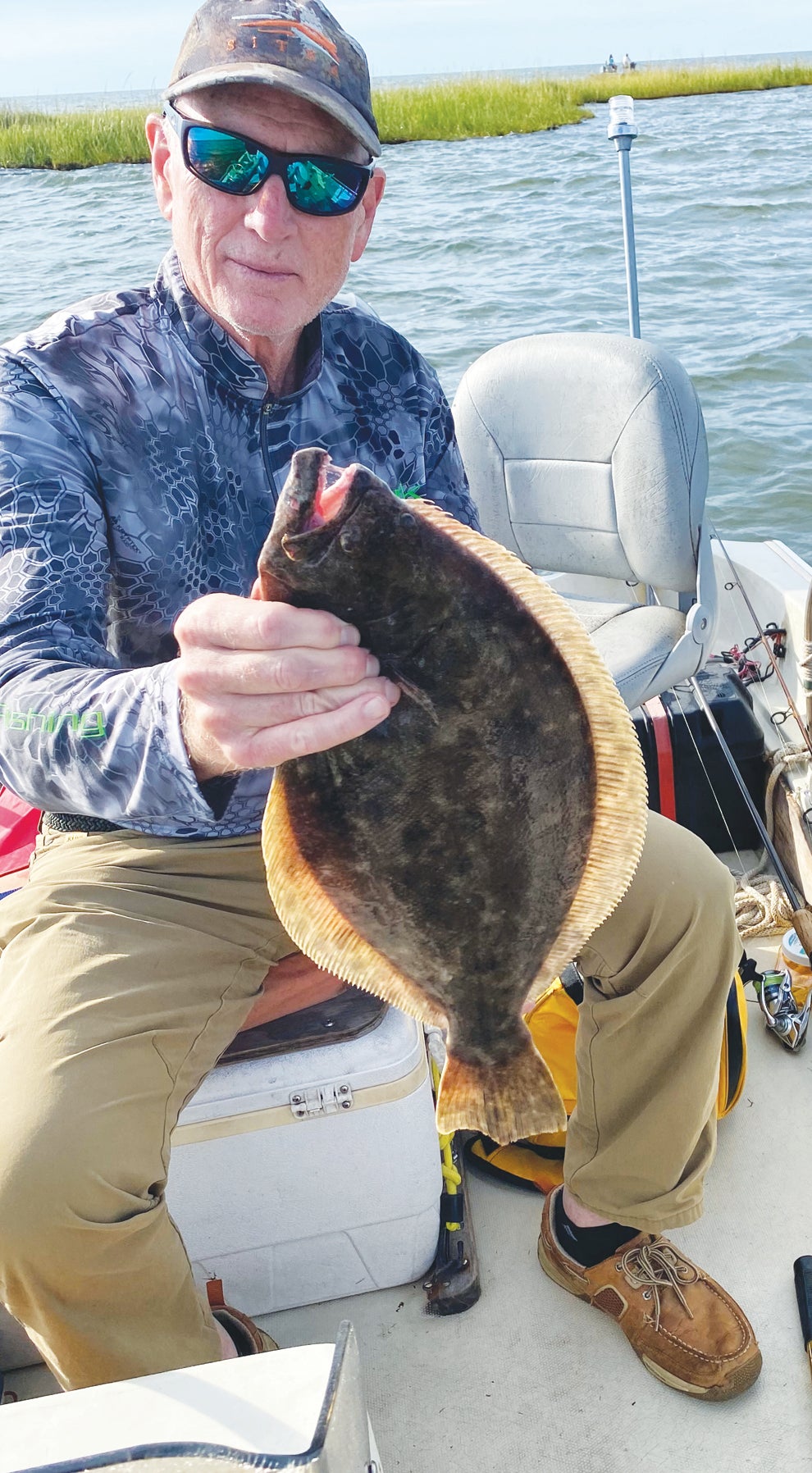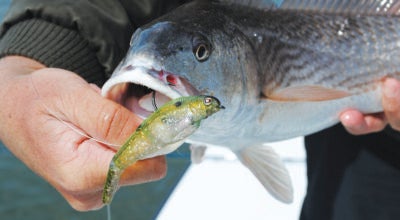Wanna catch a flounder? Better hurry up
Published 1:03 pm Monday, September 26, 2022

- Dean Harrison of Clemmons caught this flounder in the Pamlico River in mid-September. North Carolina’s ends tomorrow.
|
Getting your Trinity Audio player ready...
|
 As October looms over the horizon, the end of September offers sportsmen in North Carolina a full plate.
As October looms over the horizon, the end of September offers sportsmen in North Carolina a full plate.
The statewide archery season for deer has been underway for nine days, and plenty of hunters have been taking advantage. I’ve got a buddy facing back surgery next week and three months of inactivity; he’s killed six whitetails already, knowing he needed to fill his freezer as soon as possible.
But deer hunting isn’t the be-all and end-all for outdoorsmen. It just happens to provide most of the news.
On Saturday, the N.C. Wildlife Resources Commission will give kids a chance to do some special hunting under special regulations. Sept. 24 has been designated as Youth Deer Hunting Day – established in 2015 to give youths more opportunities to increase their deer-hunting success.
On YDHD, youths 17 years and younger may use guns or any other legal hunting equipment to take a whitetail; the rest of the hunting population can use only archery gear. If they have completed a hunter-education course, they can hunt without an adult; if not, the adult must be with the young hunter at all times. And they can hunt over dogs; hounds and beagles can be used in areas where dog-hunting is legal – normally only during gun season and in the eastern half of the state.
Once Sunday arrives, young hunters will go back to the regulations that everyone else is required to use for the season in the area they’re hunting.
In terms of fishing, something ends on Friday, and something else begins on Saturday.
The month-long recreational flounder season ends on Friday, Sept. 30. Fishermen were given September to keep flounder, only one a day. In many cases, flounder are caught incidentally while anglers are targeting speckled trout, redfish or bluefish in North Carolina’s coastal waters.
On Saturday, Oct. 1, the commission will put Delayed Harvest Trout Waters regulations back in place on 36 streams or other bodies of water – some of them among North Carolina’s most-popular fishing spots.
These special waters allow anglers to keep seven trout daily between the first Saturday in June and the first Friday in October, with no bait or size restrictions. The rest of the year, it’s catch-and-release fishing with only single-hook, artificial lures allowed.
The commission stocks these waters heavily from fall through spring to allow anglers to catch plenty of rainbows, brookies and browns. Most of the streams are marginal in terms of habitat for supporting trout year-round – higher water temperatures are the key factor during the warm months – so allowing trout to be kept from June-September takes out fish that might not make it through the summer.
CWD public forums
The commission has scheduled KNOW CWD public forums in Northwest North Carolina, aimed at teaching hunters more about chronic wasting disease – found in two Yadkin County deer over the past 10 months – and addressing special regulations in areas within 30 miles of the discovery sites.
A public forum will be held Thursday, Oct. 4 at the Yadkin County Cooperative Extension Center (2051 Agricultural Way) in Yadkinville. Doors will open at 6 p.m., and the forums will last from 6:30-8:30.
The forums will also be streamed live on the Commission’s Facebook Page.
Davie, Forsyth, Stokes, Surrey and Yadkin counties fall completely within either the Primary Surveillance Area (a rough circle with a 5-mile radius around the cite of the CWD deer kills) or Secondary Surveillance Area (a rough circle with a 30-mile radius around the cite). Portions of Alleghany, Wilkes and Iredell counties are within the Secondary Surveillance Area.
Alleghany, Davie, Forsyth, Iredell, Stokes, Surry, Wilkes and Yadkin counties fall entirely or partially within the Surveillance Areas. Sportsmen and women who hunt in these areas are encouraged to attend the forums to learn about the special regulations.
CWD is a neurological disease that affects white-tailed deer and other cervids, including elk and caribou. It is always fatal. The commission’s response to CWD can be viewed in a 6-minute video at https://www.youtube.com/watch?v=hCNmNRsIh3U or at ncwildlife.org/CWD.




